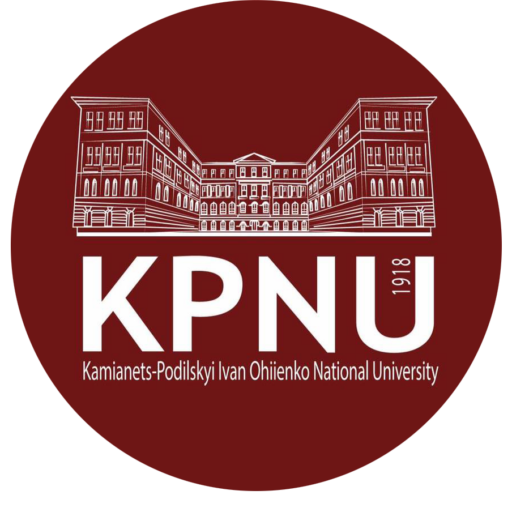Алла Марчишина
Кам’янець-Подільський національний університет імені Івана Огієнка
Stylistics for BRITISH University STUDENTS
Since Aristotle’s “Poetics”, stylistics has been a key concern for everyone who expresses interest towards imagery of a text. The reasons are various, but the linguistic choices employed to represent ideas in the most personal way are the links uniting the text producer and its recipient. Moreover, the postmodernist paradigm treats such coding/decoding process as a game between these two people – they play with the text contents, decipher its secret sense though chronologically there may be centuries between the time when the two of them are involved in this process.
Stylistics is a framework for exploring the language of texts. In order to explore how linguistic choices can contribute to the ways in which readers understand and interpret texts as well as the relationship between textual structures and their effects, the course of stylistics is included into the curricula of university programs teaching languages and literature.
This paper is an attempt to analyse how the course of stylistics is incorporated into the curriculum of British universities.
The University of Lancaster [2] offers a course called “Language and Style” which is referred to as “stylistic course”. Its main objectives are stated as “a set of analytical tools from the “stylistician’s toolkit” that you can use to examine texts” and “to encourage students to use those tools on additional texts, both during and after the sessions, so that you learn by doing.” The course seeks to teach students differentiate between three forms of literature: prose, poetry, and drama. The course assessment includes a coursework and a state exam. Each topic offered for discussion is supplied with topic objectives and recommended literature. “Readings” comprise classical and cutting-edge books published in 1969-2001. Besides, students are advised to browse the Internet resources (mainly grammar links) to master language skills.
The University of Edinburgh [4] offers a postgraduate course of stylistics aiming at becoming “familiar with stylistics, a framework for exploring texts of various kinds, but with a particular focus on literary texts”. The course covers “three main areas: the language of poetry, the language of fiction, and the language of non-fiction”. The course requires no pre-requisites, the assessment consists of coursework and written exam in equal proportions. It is available to all postgraduate students in the College of Arts, Humanities and Social Sciences in the second semester. The total number of hours is 200, 27 of which are seminar/tutorial hours.
The University of Kent [5] announces a module in stylistics which “is concerned with the stylistic analysis of literature and is based on the premise that the decision to study literature is also a decision to study the expressive mechanics of language (and vice versa)”. Hence, “attention is given to all three main genres (poetry, prose fiction and drama)”. The total study hours are 150 where 20 are contact hours. Main assessment methods of the course are 2 essays which should include 1000 and 2000 words each. The list of indicative reading presents textbooks and theoretical works published between 1986-2007. The course requires no pre-requisites.
The University of Aberdeen [3] offers an undergraduate level course “Stylistics” which “enables students to apply skills of close linguistic analysis to a range of literary texts and genres”. The course three-fold assessment covers tutorial/seminar participation (weighing 20 points), textual analysis (weighing 30 points), and an essay containing no less than 2500 words (weighing 50 points) handed in through the online coursework submission platform Turnitin. Besides, there are some courses and programmes which have to be taken before this course. These may be one of the following: “Encounters with Shakespeare”, “The Tragedy of Knowledge”, “Language in Society”, “Varieties of English”, or “Elements of English”.
King’s College London [1] offers the course “Stylistics” for two departments: “Social Science & Public Policy” and “Education, Communication & Society”. The entry requirements state that “Stylistics” is meant for literature Majors and is aimed at uniting language and literature. As far as “literature is an extraordinary use of language: eloquent, inspiring, and skilled”, stylistics “uses the tools of linguistics – phonology, grammar, semantics and pragmatics – to understand these powerful effects”. The two-fold assessment requires one 2500 word essay (80% of the total) and one 10 minute presentation (20%). The module is available for the current academic year and is subject to change.
This short survey conceptualizes courses of stylistics as components of curricula of British universities. The objectives, contents, assessment, scope of learning hours, lists of related literature are very much alike. The courses explicate specific and generic learning outcomes which describe what skills the students will be armed with. The differences refer to the year of study, coverage of topics, the lecture’s preferences in recommending literature. All the reviewed courses in stylistics empower students to become critical readers by developing rigorous techniques of linguistic analysis.
REFERENCES
- King’s College London: official web-site. URL: https://www.kcl.ac.uk/abroad/module-options/stylistics
- The Lancaster University: official web-site. URL: https://www.lancaster.ac.uk/fass/projects/stylistics/introduction/outline.htm#aspects
- The University of Aberdeen: official web-site. URL: https://www.abdn.ac.uk/registry/courses/course/LN3524/2023
- The University of Edinburgh: official web-site. URL: http://www.drps.ed.ac.uk/19-20/dpt/cxlasc11156.htm
- The University of Kent: official website. URL: https://www.kent.ac.uk/courses/modules/module/LING5500
